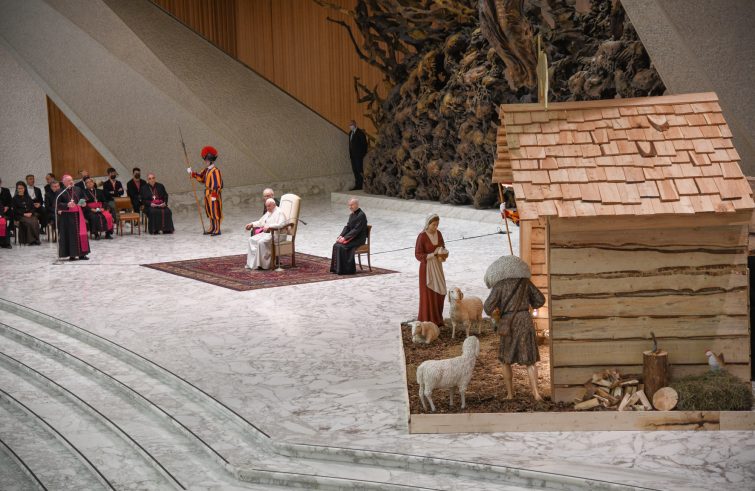
“Many people are afraid of silence, they have to speak, and speak, and speak, but they cannot accept silence because they are afraid”, the Pope denounced in unscripted remarks in Wednesday’s catechesis devoted to the figure of Saint Joseph, “man of silence.” Francis quoted philosopher Pascal, who observed that “all the unhappiness of men arises from one single fact, that they cannot stay quietly in their own chamber.”
“It is important to think about silence in this age in which it does not seem to have much value”,
His Holiness said: “Joseph’s silence is not mutism, he is not taciturn; it is a silence full of listening, an industrious silence, a silence that brings out his great interiority.” “How good it would be if each one of us, following the example of Saint Joseph, were able to recover this contemplative dimension of life, opened wide in silence.” “But we all know from experience that it is not easy: silence frightens us a little”, Francis remarked, “because it asks us to delve into ourselves and to confront the part of us that is true.”
“Jesus said clearly: whoever speaks ill of his brother or sister, whoever slanders his neighbour, is a murderer”, the Pope reminded the faithful. “Killing with the tongue. Let us think a little about the times we have killed with the tongue: we would be ashamed! But it will do us a great deal of good.”
“It is not easy” to recognise that Voice, which is very often confused along with the thousand voices of worries, temptations, desires, and hopes that dwell within us”, Francis recognised: “but without this training that comes precisely from the practice of silence, our tongue can also ail.”
“Without practicing silence, our tongue can also ail”,
and “instead of making the truth shine, it can become a dangerous weapon”, Francis explained: indeed, our words “can become flattery, bragging, lies, backbiting and slander. It is an established fact that, as the Book of Sirach reminds us, ‘many have fallen by the edge of the sword, but not so many as have fallen because of the tongue.’”
Immediately looking for our mobile phone “does not help”, it “makes us slip into superficiality”,
the Pope’s exhortation: from Saint Joseph we must learn “to cultivate silence: that space of interiority in our days in which we give the Spirit the opportunity to regenerate us, to console us, to correct us.” “I am not saying to fall into muteness”, Francis added: “Silence. But very often, each one of us look inside, when we are working on something and when we finish, immediately we look for our telephone to make another call… we are always like this. And this does not help, this makes us slip into superficiality. Profoundness of the heart grows with silence, silence that is not mutism, but which leaves space for wisdom, reflection and the Holy Spirit.”
“We are afraid of moments of silence. Let us not be afraid! It will do us good.” The Pope’s invitation: “the benefit to our hearts will also heal our tongue, our words and above all our choices.”
In fact, Joseph “combined silence with action. He did not speak, but he acted, and thus demonstrated what Jesus once told his disciples: ‘Not everyone who says to me, Lord, Lord, shall enter the kingdom of heaven, but he who does the will of my Father who is in heaven.’” “Silence. Fruitful words when we speak, and we remember that song: ‘Parole, parole, parole…’, words, words, words, and nothing of substance.
Silence, speaking in the right way, and biting your tongue a little, which can be good at times instead of saying foolish things.”
The Pope concluded with a prayer: “Saint Joseph, man of silence, you who in the Gospel did not utter a single word, teach us to fast from vain words, to rediscover the value of words that edify, encourage, console and support. Be close to those who suffer from words that hurt, like slander and backbiting, and help us always to match words with deeds. Amen”. Before greeting the Italian-speaking faithful, the Pope called on everyone to pray for the “brothers and sisters” of Haiti, hit by a devastating explosion of a gas truck in Cap-Heitien, which took the lives of more than 60 people.










